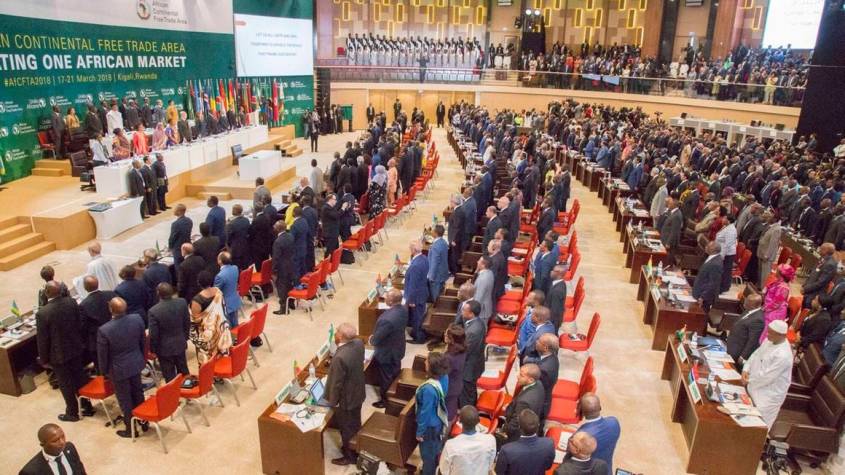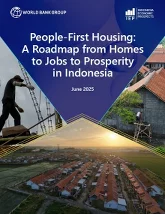INTERVIEW | I am Appalled by Africa’s Backsliding Democracy – Amb Smaïl Chergui
Amid setbacks and progress in conflict resolution, Africa’s peace and security issues require innovative and holistic responses, says Amb. Smaïl Chergui, former African Union Commissioner for Peace and Security.

PSC Report: As a long-time leader of African Union (AU) efforts to resolve continental peace and security challenges, what is your assessment of the current situation?
Amb. Chergui: The continent has made notable strides in conflict resolution and peacebuilding, but persistent and emerging challenges continue to undermine progress. Africa’s security landscape is more challenging than ever and not one of its five regions is completely peaceful nor its peoples fully secured. I am appalled by the backsliding of democracy and governance evidenced by the many unconstitutional changes of government (UCGs). We could neither prevent these nor create conditions and tools to assist affected countries to return to constitutional order and, even more importantly, address the causes.
In addition, instability, the ever-growing terrorism threat and associated criminal networks, and climate change are heavily affecting Africa in a very polarised international environment almost without compass and morality. I am deeply concerned by the return of interstate wars in Western Sahara and the Great Lakes region. Exacerbating the situation is Sudan’s civil war, the complexities of Libya, terrorism in West Africa and the frustration of Sahel countries over lack of support to address their woes.
Beyond denialism and subsidiarity, the Peace and Security Council should act timeously and decisively on looming crises
National and regional responses in Somalia, Central African Republic (CAR) and Mozambique are encouraging, but we need creativity and bold initiatives to manage and fix crises, supported by AU/regional economic community (REC) policies and instruments. Beyond denialism and subsidiarity, the Peace and Security Council (PSC) should act timeously and decisively on looming crises.
This will increase our credibility and legitimacy at a time when the United Nations (UN) is looking for new avenues to maintain peace in Africa and elsewhere. This comes after the closing of the AU-UN Hybrid Operation in Darfur (UNAMID), United Nations Multidimensional Integrated Stabilisation Mission in Mali (MINUSMA) and soon the UN Organisation Stabilisation Mission in the Democratic Republic of the Congo (MONUSCO).
PSC Report: What is the continent missing in responding to violent extremism and UCG?
Amb. Chergui: Terrorism has reached unprecedented levels. Our continent, regrettably, has become terrorism’s global epicentre, with attacks more than tripling in the last year alone. Terrorist groups are in all regions of Africa, consolidating their positions and expanding at an alarming rate.
Dominant are local groups with affiliation to either Daesh (Islamic State) or al-Qaeda that are perpetrating a complex mix of ideology-driven acts of violence, transnational organised crime and insurgency. In 2023, five of the 10 most-affected countries were in Africa, namely Burkina Faso, Mali, Somalia, Nigeria and Niger. Africa is likely to become the headquarters of global groups such as al-Qaeda and Islamic State.
Terrorism has been imposed on Africa as neither al-Qaeda nor Islamic State was created or started its criminal activities on the continent. We have been fighting terrorism for 22 years, in many cases alone and without the necessary equipment. Yet we developed AU tools to coordinate and foster cooperation among member states, prevent radicalisation and fight the scourge. These efforts include the Somalia mission and those against the Lord’s Resistance Army (LRA) and Boko Haram. Africa has degraded different terrorist groups, upgraded and adapted the training of its forces and mobilised the international community to shore up its financial resources.
We urgently need now to consolidate these efforts through a comprehensive approach not limited to military and security responses. We need a multifaceted strategy of intelligence cooperation, socio-economic initiatives, strengthened governance, community-driven approaches and robust international collaborations. This should address immediate threats and conditions that foster terrorism.
Alliance des États du Sahel reflects Africa’s wisdom of counting first on national means to address terrorism
We have witnessed the eruption of UCGs amid a massive popular uprising against bad governance and socio-economic demands. The PSC has preferred to stay behind the Economic Community of West African States (ECOWAS). We see today that economic sanctions and the threat of force have profoundly damaged ECOWAS’s image, leading the countries concerned to create an alternative grouping.
The AU could have been the last resort to avoid further deepening the crisis and to find a pragmatic solution. It is a big mistake to isolate these countries and leave them to their own devices. We need to talk to them. I wonder why AU support groups for the transition have not entered a structured dialogue with the transition authorities and partners to hasten a return to constitutional order.
Meanwhile, I look with interest to the newly home-grown Alliance des États du Sahel as it reflects the African wisdom of counting first on national means to address terrorism. Perhaps ECOWAS’ readiness to deploy its standby force is a step in the right direction, especially after the failure of the West in the Sahel.
PSC Report: What has the PSC contributed to achieving peace and stability in Africa?
Amb. Chergui: Given the unprecedented challenges and crises and its limited resources, the Council’s efforts have been outstanding. Through peace support missions, we liberated 80% of Somalia’s territory and gave space to elected institutions. We degraded LRA and put an end to its unspeakable crimes against civilians. Within UNAMID, we helped pacify and stabilise Darfur. We deployed a force in Sudan, Mali and CAR at a very critical time for all three.
In making the African Peace and Security Architecture functional, the inauguration of the continental logistics base in Douala and the military exercise in December 2015 in Lohatla, South Africa, are major achievements in enabling the standby force. Much energy has also been dedicated to prevention, including structural prevention, to create conditions to evolve from early warning to early action. In addition, peace agreements have been secured in Mali, South Sudan and CAR as part of conflict mediation and resolution.
The PSC has very actively promoted youth and women inclusivity, democracy, good governance, the rule of law and justice, in compliance with the highest international standards. These efforts have fostered a better image globally of the PSC and AU, prompting the signing of partnerships based on mutual respect, especially with the UN.
The Council continues to be deeply involved in devising peaceful solutions to the crises in Libya, the Great Lakes region and Sudan amid clear implications that foreign actors are at work.
PSC Report: Do you believe the PSC, as currently constituted and shaped, is ideal for handling the issues it faces or should it be reformed? If the latter, what reform is needed?
Amb. Chergui: Member states always tailor the fit they want. You have a sense of their individual will through their contributions to the budget and the AU Peace Fund, their participation at the meetings, their inputs and initiatives.
The PSC Secretariat is managed by fewer than 10 people, while the UN Security Council (UNSC) secretary is supported by 130 staff. That indicates the level of pressure to prepare, organise and follow up Council meetings in Addis Ababa.
It may be necessary also to improve its decision-making process to ensure timely and pertinent responses to emerging crises in line with the treaty establishing the PSC. Subsidiarity is very important to ensure that RECs are our first line of action and response, but it should not delay timely decisions on emerging crises.
The PSC was established to reflect continental interests and not the interests of a specific region or a country
The time has come, too, to actively promote alternative financing for peacemaking and post-conflict stabilisation as AU Peace Fund resources are limited and the debate on possibly using UN funds is far from over. We need a permanent partnership with the African business community and private sector to secure investment in peace and security on a win-win basis. We need to replicate the common action we jointly realized in combatting Ebola under the leadership of former AU Chairperson Mrs Nkosazana Zuma.
PSC Report: What is your view on the PSC having only two members from North Africa. How can this be addressed amicably to prevent lasting damage to the Council?
Amb. Chergui: It is the Assembly of the Heads of State and Government that shoulders the responsibility to put in place institutions and organs that fit the purposes of our African common objectives and collective work. The PSC was therefore established to reflect continental interests and not the interests of a specific region or a country.
While the Assembly is now seized with the matter and some options have been tabled, we should keep in mind that any reform or review must reinforce the unity and solidarity among member states and boost Pan-Africanism and the effectiveness of the PSC. This matter is deeper than a mere redistribution of seats among the regions. The continent is currently faced with unprecedented challenges, some are even existential challenges to our member states and our thinking should focus on how to make the PSC relevant and effective, how to increase Africa’s leadership and ownership of its peace and security agenda, as well as how to ensure compliance of member states with the Council decision.
PSC Report: What advice would you give to enhance the implementation of the African Peace and Security Architecture?
Amb. Chergui: The African Standby Force should be strengthened through regular personnel training and exercises to ensure readiness and interoperability. These exercises should simulate scenarios including peacekeeping, humanitarian assistance and counter-terrorism operations. The regional depots need to function as soon as possible.
The Continental Early Warning System must be enhanced in collaboration with REC systems and specialised institutions. This will involve integrating advanced technologies such as satellite imagery, big data analytics and artificial intelligence, improving data collection, analysis and prediction capabilities, and training analysts and field officers.
Preventive diplomacy and mediation need to be reinforced by the timely deployment of special envoys and mediators with conflict resolution expertise, including FemWise mediators.
In the new world order, the AU and its states should ensure that Africa is not again marginalised
There should be better integration of gender and youth perspectives, including addressing the needs and challenges of women and youth in conflict and post-conflict settings, such as economic empowerment, education and psychosocial support.
Communication and public awareness is also vital for garnering support and fostering a culture of peace. Investment should be increased in research and knowledge sharing, which can enhance the PSC’s ability to develop informed and effective strategies. Finally, continuous monitoring and evaluation is essential to assess the effectiveness of peace and security initiatives and make necessary adjustments.
PSC Report: Are there other pressing issues you would like to raise?
Amb. Chergui: The international situation has been affected for good by the wars in Ukraine and Gaza and a new world order is in the making. The AU and member states should make sure that Africa is not again marginalised or degraded.
This will be easier if we silence the guns and valorise our authentic values and good practices to create a continent free of conflicts, stable and committed to securing socio-economic development for its people. This is the time for leadership. It is our time to prevail.
This article was originally published by ISS PSC Report, an African Newspage syndication partner. We have their permission to republish.












